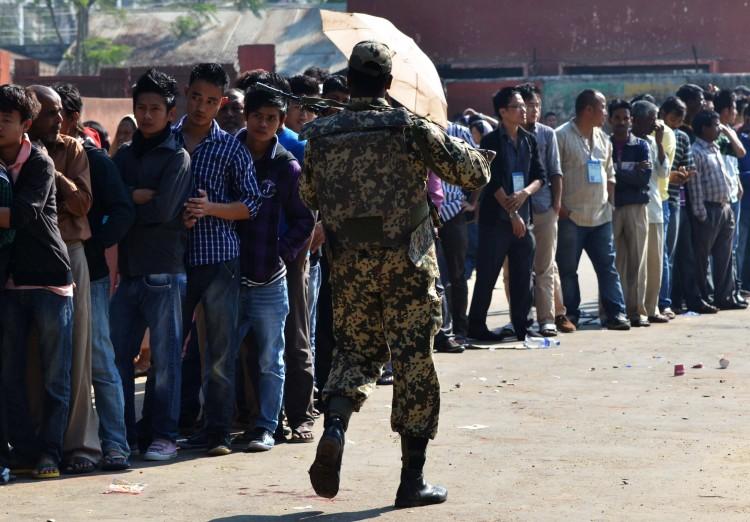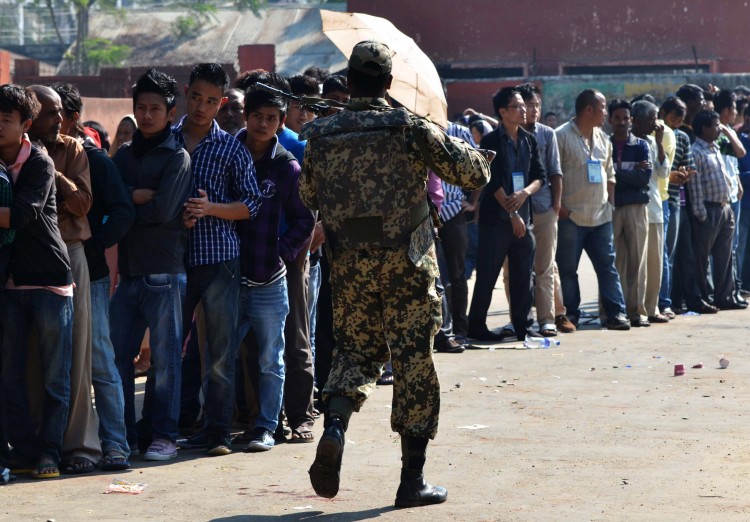All political parties have retained their seats in Meghalaya, Nagaland and Tripura. Assembly elections in these three states, having 60 seats each, were held on February 14 and February 23.
Security was tightened for the elections fearing insurgency from local militia groups. The four northeastern states – Tripura, Meghalaya, Mizoram and Assam - share a 1,880 km border with Bangladesh while Mizoram, Manipur, Nagaland and Arunachal Pradesh share a 1,640 km border with Burma (now called Myanmar). Most of the international border runs through dense forests and mountainous terrain, making it vulnerable. The Border Security Force guards India’s border with Bangladesh while Assam Rifles is posted along the Burma border.
“All states have witnessed considerable development under these leaderships. Although poverty and corruption exists, the governments have initiated many public schemes” said Uditiya Saikia, a local businessman based in Guwahati, Assam.
Meghalaya
Chief Minister Mukul Sangma retained his seat as he led the Congress to win a record 29 seats in the 60-member House, two short of an absolute majority. But it is as good as one, due to the state’s fractured political scene.
The chief minister said, “Having won the battle is just one part of an achievement, but complete achievement is when being in power we can wipe out backwardness and poverty.” His wife Dikkachi D. Shira and brother Zenith M. Sangma were also victorious from Mahendraganj and Rangsakona.
The Congress under Mukul Sangma won 13 out of the 24 seats in Garo Hills, which was supposed to be the stronghold of P. A. Sangma. But he could only manage two seats there. P. A. Sangma had quit Sharad Pawar’s Nationalist Congress Party (NCP) to form the National People’s Party (NPP) last year.
In the 2008 Assembly elections, the Congress had bagged 25 seats. The NCP on the other hand won two seats with its incumbent deputy speaker Sanbor Shullai retaining his urban South Shillong constituency.
The United Democratic Party, which was the key ally of the Congress for the past three years in the Meghalaya United Alliance coalition government, could retain eight out of 11 seats it won in 2008.
Cabinet Ministers HDR Lyngdoh and Prestone Tynsong retained their Sohiong and Pynursla seats respectively.
Thirteen Independent candidates also won from their constituencies, some of which are already camping with the Congress.
Carved out of Assam in 1972, Meghalaya has seen 23 chief ministers in a span of 41 years. Captain Williamson Sangma, who led the government for the first time, was the only one to ever lead a single-party government in the state.
Defying a “bandh” (strike) call by militants in some districts, Meghalaya recorded a high turnout of 88 per cent.
Nagaland
Naga People’s Front, the regional party that heads a coalition of smaller local parties, retained power with 38 seats in the 60-member state assembly. The NPF-led alliance will form government for a third consecutive term.
Congress could only manage eight seats, after winning 23 in 2008.
In Nagaland, where the separatist rebels are especially active, the “main election issues were development and integration of Naga regions,” said Monalisa Tase, who teaches political science at Nagaland University to the Wall Street Journal. The state’s local tribal population has long demanded carving out new states for different ethnicities.
Ms. Tase says locals trust the state’s chief minister, Neiphiu Rio, “under whose leadership they believe the rate of insurgency has gone down considerably.”
The NPF had a pre-poll alliance with the BJP and JD-U and the strength of DAN in the outgoing assembly was 35. In the 2008 polls, the NPF won 26 seats on its own
Nagaland had a turnout of 83.27 per cent in the assembly elections held on Saturday, which passed off peacefully barring a few minor incidents. “There is still a considerable fear among the people (from other states) of local militia groups. Mostly they stay back in their homes or hotels in the evenings” said Uditiya.
Tripura
For the fifth local election in a row, the Communist Part of India (Marxist) won with 49 seats in the 60 member state assembly. The congress which came in second, could only secure 10 seats, like in 2008.
After being ousted from Kerala and West Bengal, Tripura is the only state in India ruled by Communists, who have been in power there for over two decades.
Uditiya concluded “The people have elected their leaders again. We hope that the governments will bring more schools and healthcare facilities, especially in the interiors and the hilly regions”.







